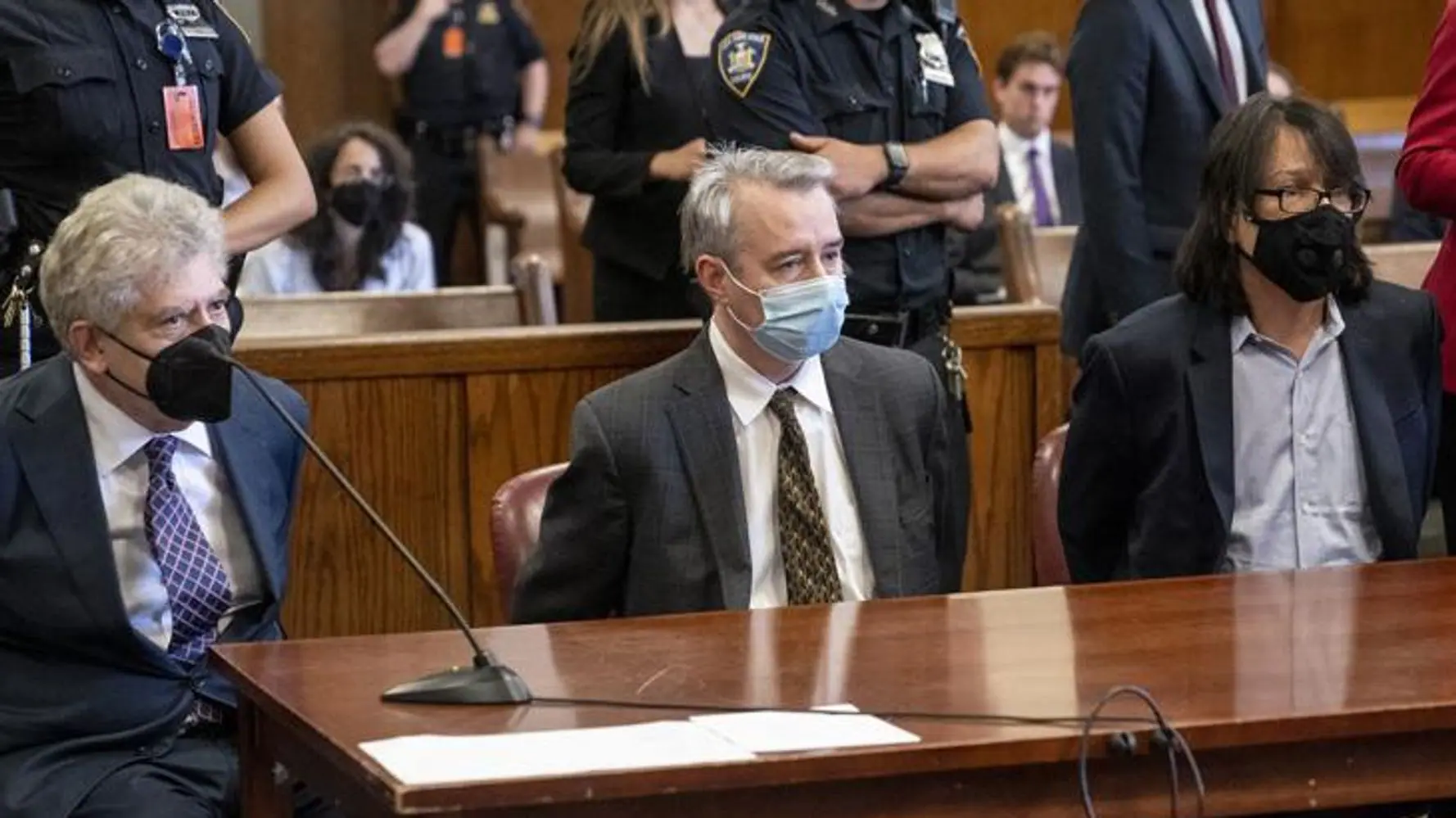3 charged for selling stolen Hotel California lyrics by the Eagles

Three men were indicted for allegedly conspiring to sell handwritten notes and lyrics for the Eagles album Hotel California.
The 100 or so pages were stolen in the late 1970s according to band member Don Henley and include the lyrics to the songs Hotel California, Life in the Fast Lane and New Kid in Town. The items are valued at more than $1 million.
The trio, Glen Horowitz, Craig Inciardi and Edward Kosinski were all charged in the New York Supreme Court with one count of fourth degree conspiracy, according to a news release from the New York County D.A’s office. The three of them were allegedly involved in trying to sell Henley’s handwritten notes to auction houses like Sotheby’s and Christie’s.
Horowitz was also charged with first-degree attempted criminal possession of stolen property and two second-degree counts of hindering prosecution, while Inciardi and Kosinski face first-degree charges of criminal possession of stolen property.
Lawyers representing the defendants say they are not guilty and that the “the DA’s office is alleging criminality where non exists and unfairly tarnished the reputations of well-respected professionals. We will fight these unjustified charges vigorously. These men are innocent.”
Henley’s manager Irving Azoff said, “This action exposes truth about music memorabilia sales of highly personal, stolen items hidden behind a façade of legitimacy.”
According to the district attorney’s news release the pages were stolen in the late 1970s by an author who had been hired to write a biography of the band. That biographer then sold the pages in 2005 to rare book dealer Horowitz who then sold it to Inciardi and Kosinski.
“Rather than making any effort to ensure they actually had rightful ownership, the defendants responded by engaging in a years-long campaign to prevent Henley from recovering the manuscripts,” stated the release.
Enjoying this article?
Subscribe to get more stories like this delivered to your inbox.
The New York County district attorney Alvin L. Bragg Jr said in a statement on July 12, “There is no room for those who seek to ignore the basic expectations of fair dealing and undermine the public’s confidence and trust in our cultural trade for their own ends. These defendants attempted to keep and sell these unique and valuable manuscripts, despite knowing they had no right to do so,”
Senior Writer
